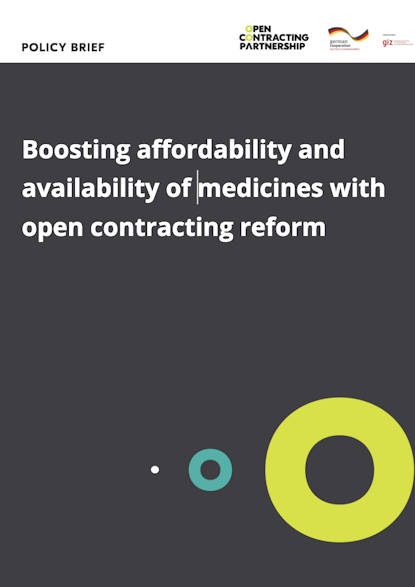Boosting affordability and availability of medicines with open contracting reforms
Low and middle income countries (LMICs) have made ambitious commitments to Universal Health Coverage (UHC) as part of the 2030 Sustainable Development Agenda. But these commitments come at a difficult time for the public health sector: international donors are decreasing their aid contributions, the rise in chronic disease is increasing costs and pressure, and the pandemic added unprecedented strain on these already fragile systems. As a result, rather than seeing progress towards UHC, we have actually seen 1 billion people fall behind.
Governments are struggling to cover the cost of providing critical medicines to every patient in need. As a result, patients are forced to pay for critical medicines out of pocket, with recent data on financial protection in health showing that medicines were the primary driver of out-of-pocket health spending across Asia, Africa and Europe, expenses that have pushed more than half a billion people into extreme poverty. WHO research has shown that inadequate procurement is a top barrier to supplying affordable and high-quality treatment, and the medical industry is the second most prosecuted sector under the OECD Anti-Bribery Convention. Without much-needed reform, poorly-managed, inefficient and opaque procurement practices will continue to contribute to higher prices, misuse of state funds and lower quality treatment options.
